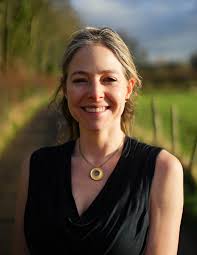Exploring the Impact of Alice Roberts in Science and History

Introduction
Alice Roberts is a prominent figure in the fields of archaeology and biological anthropology. As a successful television presenter and author, she has made significant contributions to the popularisation of science in the UK. Her work not only enhances public understanding of the past but also encourages the exploration of our biological heritage, making her a vital voice in contemporary scientific discussions.
Career Highlights
Alice Roberts began her career as an osteoarchaeologist and has held academic positions, including a professorship at the University of Birmingham. She gained widespread recognition for her work on television, particularly her engaging documentaries that explore the intersection of archaeology and science. Series such as “Digging for Britain” have sharpened public interest in archaeological discoveries, encouraging both educational engagement and tourism.
Recent Projects and Contributions
In recent years, Alice Roberts has been involved in a variety of projects that underline issues like social justice in archaeology and the importance of understanding human evolution. She has been vocal about increasing diversity in scientific fields, highlighting how varied perspectives enrich scientific inquiry. With the advent of the COVID-19 pandemic, Roberts took to social media to discuss the evolution of the virus, linking her expertise in human biology to current events, thereby bridging academic knowledge with public discourse.
Future Prospects
Looking ahead, Alice Roberts continues to influence upcoming generations of scientists and historians. Her initiatives to promote STEM education among young people, particularly girls, promise to inspire the next wave of innovators in the field. Furthermore, Roberts’ ongoing research and educational outreach aim to enhance our collective understanding of human history and its relevance to today’s society.
Conclusion
Alice Roberts stands as a pivotal figure in the communication of scientific knowledge related to archaeology and human biology. Her efforts not only illuminate our past but also encourage critical discussions about the future of science and history in an ever-evolving world. As she continues her work, audiences can expect to see new contributions that challenge perceptions and broaden our understanding of what it means to be human.
